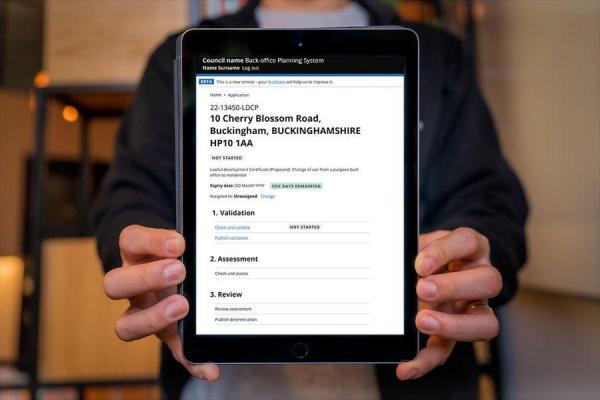Why run this pilot?
We’re testing how these products work in real-world settings, from application submission to validation, decision-making, and publication. The goal is to modernise planning with a system that’s more user-friendly, efficient, and transparent for both applicants and council officers
Pilot timeline by Local Planning Authority
Here’s when each council goes live:
- London Borough of Barnet: Lawful Development Certificates live for selected agents since 11 November 2024, Householders launched for selected agents in February 2025 and expanding to all applicants in 2025.
- London Borough of Camden: Householder applications live since December 2024, and Lawful Development Certificates live since March 2025.
- London Borough of Lambeth: Householder applications and Lawful Development Certificates live since November 2024.
- Medway Council: Householders launched for selected planning agents since December 2024, expanding to all applicants in spring 2025.
What we’re testing
These pilots are evaluating how the ODP product stack - PlanX, Back Office Planning System (BOPS), and Digital Planning Register - functions as a complete system, focusing on:
- System readiness: Ensuring the products work as expected.
- Performance comparison: Measuring the efficiency of the full ODP product stack for the first time versus existing systems.
- User feedback: Gathering insights from applicants, agents, and planning teams as well as residents using the Digital Planning Register.
- Impact assessment: Tracking improvements in resource use, user satisfaction, and decision turnaround times.
- Engagement: Understanding how people interact with and engage with planning information in current systems compared to the new ones.
Why it matters
This is the first chance to see the real benefits of ODP products in action:
- Saving time and resources for councils
- Improving user satisfaction with easier-to-use services
- Faster decisions for applicants
How it works
- PlanX Submission Service: LPAs offer a simpler online process for submitting certain application types (e.g., householder planning applications).
- BOPS: Applications are processed, consulted, and decided in the Back Office Planning System.
- Digital Planning Register: Application information and decisions are published on the Digital Planning Register for public access and enabling residents engagement through comments.
Why get involved?
- Influence the design of future planning tools with your feedback.
- Be part of a faster, more efficient application process.
- Help shape services that benefit applicants and planning teams alike.
